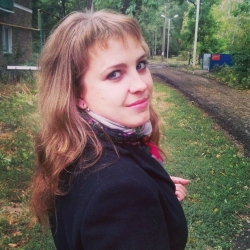

СДЕЛАЙТЕ СВОИ УРОКИ ЕЩЁ ЭФФЕКТИВНЕЕ, А ЖИЗНЬ СВОБОДНЕЕ
Благодаря готовым учебным материалам для работы в классе и дистанционно
Скидки до 50 % на комплекты
только до
Готовые ключевые этапы урока всегда будут у вас под рукой
Организационный момент
Проверка знаний
Объяснение материала
Закрепление изученного
Итоги урока

Была в сети 31.03.2025 08:04

Каштан Алина Анатольевна
Учитель английского языка
35 лет
Местоположение
Россия, Железногорск, Курская область, Железногорский район
Специализация
What would you say if you were asked about the education system in Russia?
Категория:
Английский язык
04.04.2022 09:49












